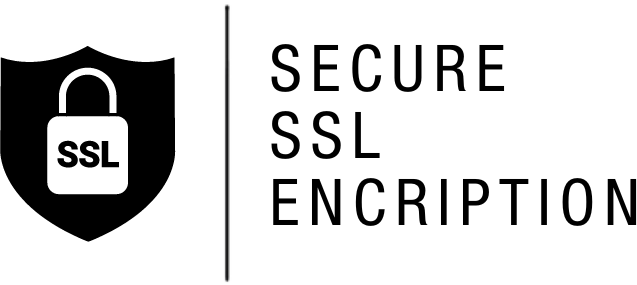Sleep Tracking: Understanding the Data to Optimize Your Sleep
Introduction
In today's fast-paced world, where sleep often takes a backseat, understanding the quality and duration of our sleep has become increasingly important. Sleep tracking technology has emerged as a popular tool to monitor and analyze our sleep patterns, providing valuable insights into our sleep quality and habits. In this article, we will explore the benefits of sleep tracking and how understanding the data can help optimize your sleep for better overall health and well-being, supported by relevant research papers.
The Importance of Sleep
Sleep plays a vital role in our physical and mental well-being. It is during sleep that our bodies and brains undergo essential processes for restoration, memory consolidation, and overall functioning. Chronic sleep deprivation or poor sleep quality can lead to a range of health problems, including increased risk of cardiovascular diseases, impaired cognitive function, weakened immune system, and mood disorders.
The Benefits of Sleep Tracking
- Sleep Awareness: Sleep tracking devices, such as wearable fitness trackers or smartphone apps, provide objective data about our sleep patterns, including sleep duration, sleep stages, and disturbances. This awareness helps us understand our sleep habits, identify potential issues, and make informed decisions to improve our sleep.
- Sleep Quality Assessment: Sleep trackers can analyze sleep quality metrics like sleep efficiency, time spent in different sleep stages (e.g., deep sleep, REM sleep), and the number of awakenings during the night. By assessing these parameters, we can identify patterns or disruptions that may be impacting the overall quality of our sleep.
- Personalized Sleep Recommendations: Sleep tracking data can provide personalized insights and recommendations to optimize sleep. Based on your sleep patterns, some devices offer suggestions on factors like ideal bedtime, wake-up time, and even lifestyle changes that can enhance sleep quality.
Understanding the Sleep Tracking Data
- Sleep Duration: Research has consistently shown that adequate sleep duration is crucial for optimal health. The National Sleep Foundation recommends adults aim for 7-9 hours of sleep per night. However, sleep quality is just as important. Tracking your sleep duration can help ensure you meet these recommendations and adjust your routine accordingly.
- Sleep Stages: Sleep consists of various stages, including light sleep, deep sleep, and REM sleep. Each stage serves different purposes in terms of physical restoration and cognitive processing. For light sleep (N1, NREM), sleep studies say adults should aim for 5%. 45% of your sleep should be N2, NREM, with the remaining 25% of sleep each for both deep sleep and REM sleep. By understanding your sleep stage distribution, you can assess whether you are getting sufficient amounts of restorative deep sleep and REM sleep.
- Sleep Efficiency: Sleep efficiency represents the percentage of time spent asleep compared to the total time spent in bed. It is an indicator of how well you are utilizing your time in bed for actual sleep. Higher sleep efficiency indicates more consolidated and restful sleep.
- Sleep Disturbances: Tracking sleep disturbances, such as the number of awakenings or periods of restlessness during the night, can provide insights into factors that disrupt your sleep. These disturbances can be due to environmental factors, lifestyle choices, or underlying sleep disorders that may require further investigation.
Optimizing Your Sleep
- Consistent Sleep Schedule: Maintain a regular sleep schedule by going to bed and waking up at consistent times, even on weekends. This helps regulate your body's internal clock and improves sleep quality.
- Sleep-Enhancing Environment: Create a sleep-friendly environment by keeping your bedroom cool, dark, and quiet. Minimize external noise, invest in comfortable bedding, and consider using blackout curtains or a white noise machine to create optimal sleeping conditions.
- Prioritize Sleep Hygiene: Practice good sleep hygiene by establishing a relaxing bedtime routine. Avoid stimulating activities, such as screen time and intense exercise, close to bedtime. Instead, engage in calming activities like reading or meditation to signal to your body that it's time to wind down.
- Address Underlying Issues: If you consistently experience poor sleep despite optimizing your sleep habit and following the recommendations provided by sleep tracking data, it may be beneficial to consult a healthcare professional or sleep specialist. They can help identify and address any underlying sleep disorders or medical conditions that may be affecting your sleep.
Conclusion
Sleep tracking technology can be a valuable tool in optimizing your sleep and overall well-being. By understanding the data provided by sleep trackers, you can gain insights into your sleep patterns, assess sleep quality, and make informed adjustments to enhance your sleep. Remember to focus not only on sleep duration but also on factors like sleep stages, sleep efficiency, and disturbances to get a comprehensive understanding of your sleep health.
While sleep tracking provides valuable information, it's essential to combine it with healthy sleep habits and lifestyle choices to maximize its benefits. By maintaining a consistent sleep schedule, creating a sleep-friendly environment, practicing good sleep hygiene, and addressing any underlying issues, you can optimize your sleep and reap the rewards of improved sleep quality, daytime alertness, and overall well-being.
------------------------------------------
We hope this has helped you on your quest for brain health. If you have any questions about our products, feel free to reach out to our team.
The information Brainluxury provides is for educational and informational use only. The information is not intended to be used by the customer for any diagnostic purpose and is not a substitute for professional medical advice. You should always seek the advice of your physician or other healthcare providers with any questions you may have regarding diagnosis, cure, treatment, mitigation, or prevention of any disease or other medical condition or impairment or the status of your health.
Research
- Watson, N. F., et al. (2015). Recommended amount of sleep for a healthy adult: A joint consensus statement of the American Academy of Sleep Medicine and Sleep Research Society. Sleep, 38(6), 843-844. This paper provides guidelines on the recommended amount of sleep for adults based on expert consensus.
- Kolla, B. P., et al. (2019). Advances in wearable technology and sleep disorders: A focus on sleep apnea and restless legs syndrome. Journal of Clinical Sleep Medicine, 15(12), 1831-1839. The study explores the use of wearable technology for sleep tracking in specific sleep disorders, such as sleep apnea and restless legs syndrome.
- Cellini, N., et al. (2017). Sleep trackers and sleep logs yield similar estimates of sleep duration in healthy young adults. Chronobiology International, 34(5), 660-667. This research compares the accuracy of sleep trackers and self-reported sleep logs in estimating sleep duration in young adults.
- Grandner, M. A., et al. (2019). Sleep tracking devices: Efficacy and accuracy in a sleep laboratory setting. Sleep and Biological Rhythms, 17(2), 183-186. The study examines the efficacy and accuracy of sleep tracking devices in a controlled sleep laboratory setting.
- https://www.ncbi.nlm.nih.gov/books/NBK526132/





